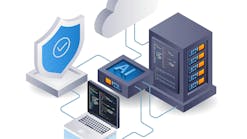DOE Announces $32 Million to Support Six Pilot Projects for Grid-Edge Technology and Smart Charge Management
The U.S. Department of Energy (DOE) has announced $32 million for six selected pilot projects to support new load growth through grid-edge innovations and the ability of energy providers to right-size grid investments for future load growth.
Additionally, these Connected Communities projects in eight states will provide new strategies and tools for utilities, grid planners and operators, automakers, electric vehicle (EV) smart charge management service providers, and the communities they serve to improve resilience and reduce costs.
"As our nation’s energy system faces unprecedented demand growth, it’s more important than ever to deploy solutions that maximize all our energy resources and deliver the most efficient, reliable, and affordable electricity possible,” said Jeff Marootian, principal deputy assistant secretary for DOE's Office of Energy Efficiency and Renewable Energy. “These pilot projects will leverage the latest grid-edge solutions—like energy efficiency, demand-responsive building systems, energy storage, EV smart charging, and advanced grid-planning strategies—to equip communities and utilities with the tools and data they need to confidently manage our evolving electric grid."
DOE will continue to evaluate applications for this funding opportunity and intends to award additional projects up to a total of $65 million, as originally announced, with additional selections as reviews are completed.
Connected Communities 2.0 version aims to address growing challenges to the grid head-on, ensuring necessary upgrades are sized correctly to accommodate increasing loads at vehicle charging locations, data centers, buildings, and industrial sites in a way that leverages the flexibility of these new loads. In the process, DOE is selecting a cohort and collecting data required for a highly flexible and resilient grid.
Connected Communities 2.0 centers on two major areas:
- Connected Communities (topic 1), focused on integrated grid-edge technical measures in buildings, industry, and transportation to prepare the electric grid for new loads and improve customer benefits and grid resilience.
- Smart Charge Management (subtopic 1A), focused on various unique urban, suburban, and rural-use cases to build confidence in smart charge management as an effective approach for EVs to provide flexibility and value to the electric grid.
Three projects have been selected in each area. The Connected Communities selectees are:
- The Accelerating Community-wide Connected Electric Loads & Energy Reliability Achieved Through Integration with Nationwide Grid (ACCELERATING) Connectivity initiative (Minnesota), led by the Beneficial Electrification League, will advance a nationally scalable approach for building load management. The project will prioritize partnerships with electric cooperatives in Minnesota that advance communications to optimize residential thermal loads as grid assets. (Award amount: $5.3 million)
- Purdue University (Indiana) will demonstrate pathways for rural electric membership cooperatives to improve energy efficiency and resilience in the face of new load growth in collaboration with the National Rural Electric Cooperative Association. Pathways include engaging with rural communities, piloting financial programs, coordinating DERs through systems, and scaling up lessons learned. (Award amount: $5.9 million)
- The Responsive Energy Communities Harnessing Advanced Grid Efficiency (RECHARGE) initiative (California), led by Pacific Gas & Electric, will target residential units, businesses and industry in the city of San Jose and in the Fresno County. RECHARGE will address the growing electric demand and distribution capacity challenges in these communities. (Award amount: $6 million)
The Smart Charge Management selectees are:
- One Energy Enterprises (Ohio) will pioneer a community charging depot for medium- and heavy-duty truck fleets, which will integrate advanced microgrid technology and DERs to minimize charging investments, while optimizing the grid. The site will be located in Findlay, Ohio, with plans for expansion to support a larger number of class 6–8 electric trucks. (Award amount: $3.2 million)
- Baltimore Gas & Electric Company (Maryland) will use a multi-faceted distributed energy resource management system to unlock grid-aware managed charging functionality. The project will feature technology that reduces residential EV charging peak loads, decreases infrastructure upgrade costs, and adjusts charging schedules to alleviate grid congestion. (Award amount: $5.9 million)
- EV.Energy (California, Florida, Alaska, Rhode Island, and Hawaii) will demonstrate and validate smart charge management solutions in five diverse utility territories across five different states. Smart charge management approaches will include optimization for renewable energy matching, reduced grid congestion, timer peak smoothing, expanded charging access for multifamily housing, and both vehicle-to-home and vehicle-to-grid technologies. (Award amount: $6 million)
The six projects selected will demonstrate the capabilities of grid-edge technologies and integrated power systems that are efficient, resilient, flexible, and affordable, along with distribution and grid-planning strategies to be replicated across the United States.
DOE's Office of Energy Efficiency and Renewable Energy (EERE) and Office of Electricity are collaborating to support integrated energy system planning with a network of technology offices and industry partners. The Connected Communities 2.0 funding announcement was led by EERE's Building Technologies Office and Vehicle Technologies Office in collaboration with the Solar Energy Technologies Office, Industrial Efficiency and Decarbonization Office, and Geothermal Technologies Office.


